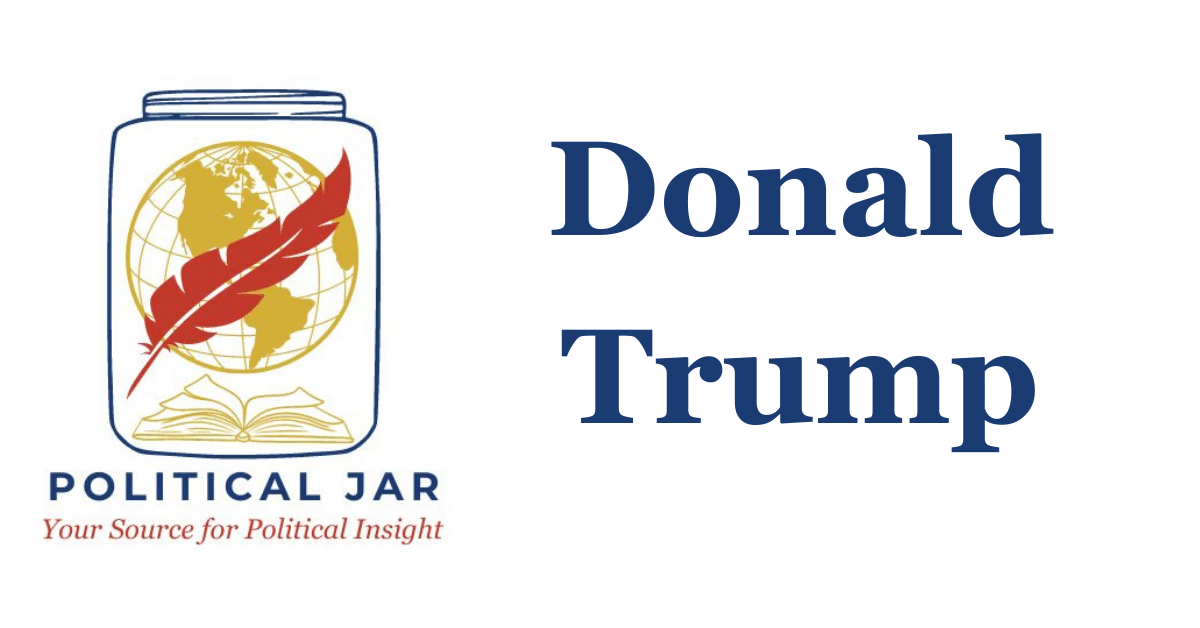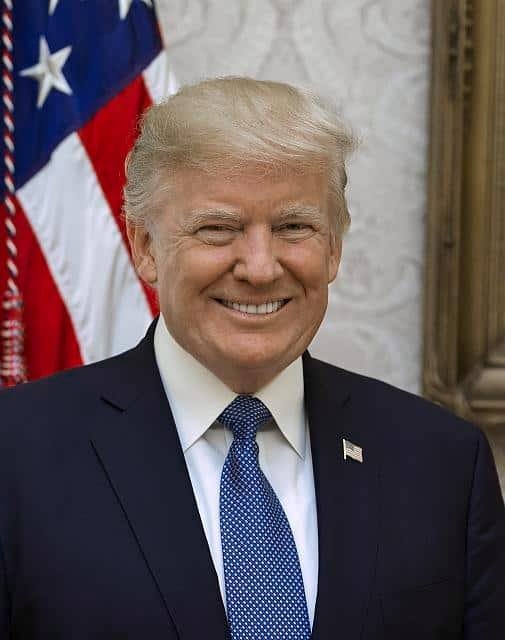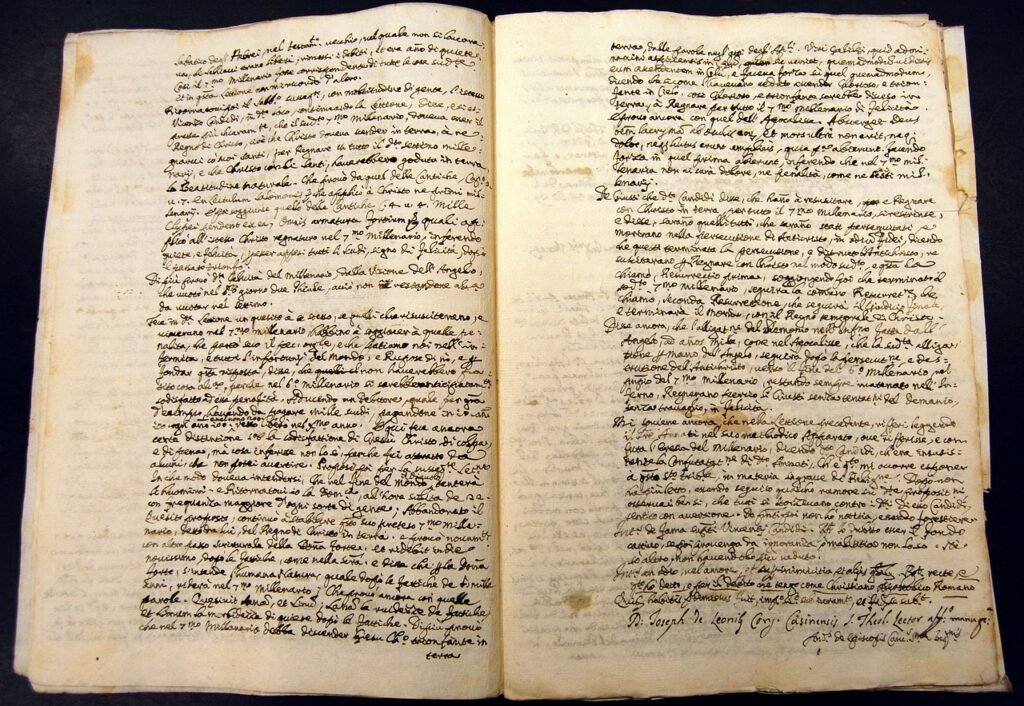




Donald Trump
Donald Trump, the 45th President of the United States, remains one of the most polarizing and unconventional figures in American political history. Born on June 14, 1946, in Queens, New York City, Trump transitioned from a real estate mogul and television personality to the leader of the free world. His presidency, from 2017 to 2021, was marked by significant policy shifts, contentious public rhetoric, and unprecedented political dynamics.
Early Life and Education
Donald John Trump was born into a wealthy family with a prominent real estate business. His father, Fred Trump, was a successful real estate developer known for building and managing middle-income housing in New York City. His mother, Mary Anne MacLeod Trump, was a Scottish immigrant. Growing up in the affluent neighborhood of Jamaica Estates, Trump was the fourth of five children (Blair, 2000).
Trump’s early education took place at the Kew-Forest School in Queens, but due to behavioral issues, he was sent to the New York Military Academy (NYMA) at the age of 13. The military academy’s structured environment helped channel Trump’s energies and discipline, and he graduated in 1964. Following NYMA, Trump attended Fordham University for two years before transferring to the Wharton School of the University of Pennsylvania, where he graduated in 1968 with a degree in economics (D’Antonio, 2015).
Business Career
After graduating from Wharton, Trump joined his father’s real estate company, Elizabeth Trump & Son, which he later renamed The Trump Organization. Under his leadership, the company expanded its focus from middle-class rental housing in Brooklyn and Queens to high-profile Manhattan real estate projects. Trump’s early successes included the renovation of the Commodore Hotel into the Grand Hyatt and the construction of Trump Tower on Fifth Avenue, which opened in 1983 (O’Brien, 2005).
Throughout the 1980s and 1990s, Trump diversified his business interests, venturing into casinos, airlines, and other industries. He acquired and developed numerous properties, including Trump Plaza, Trump Castle, and the Trump Taj Mahal in Atlantic City. Despite facing several financial challenges and declaring corporate bankruptcy multiple times, Trump’s personal brand remained strong. His name became synonymous with luxury and extravagance, aided by his frequent appearances in the media (Blair, 2000).
In 2004, Trump’s fame reached new heights with the debut of the reality television show “The Apprentice” on NBC. As the show’s host, Trump popularized the phrase “You’re fired!” and became a household name. The show’s success bolstered Trump’s image as a decisive and successful businessman, paving the way for his future political career (D’Antonio, 2015).
Entry into Politics
Trump’s entry into politics was marked by a long history of flirtations with political campaigns. He considered running for president in 1988, 2000, and 2012 but ultimately did not pursue these bids. However, in June 2015, Trump announced his candidacy for the Republican nomination for president, with a campaign centered on issues such as immigration reform, trade, and national security. His slogan, “Make America Great Again,” resonated with many Americans disillusioned with the political establishment (McAdams, 2020).
Trump’s campaign was characterized by its unconventional style, marked by inflammatory rhetoric, controversial statements, and a reliance on social media, particularly Twitter, to communicate directly with the public. Despite facing skepticism from political analysts and fierce opposition from within the Republican Party, Trump secured the nomination and went on to win the 2016 presidential election, defeating Democratic nominee Hillary Clinton (O’Brien, 2005).
The Presidency: Policies and Controversies
Trump’s presidency was marked by significant policy changes and numerous controversies. His administration pursued a range of domestic and foreign policy initiatives that often polarized public opinion and sparked intense debate.
Domestic Policy
One of Trump’s first major legislative achievements was the passage of the Tax Cuts and Jobs Act of 2017, which significantly reduced corporate tax rates and provided temporary tax cuts for individuals. Supporters argued that the tax cuts stimulated economic growth, while critics contended that they disproportionately benefited the wealthy and increased the national deficit (Baker, 2019).
On immigration, Trump implemented a series of controversial measures, including the travel ban targeting several predominantly Muslim countries, increased immigration enforcement, and the construction of a wall along the U.S.-Mexico border. His administration’s “zero tolerance” policy led to the separation of thousands of migrant families, sparking widespread outrage and legal challenges (McAdams, 2020).
Trump also focused on deregulation, rolling back numerous environmental protections and regulations across various industries. His administration’s approach to climate change was marked by skepticism, culminating in the withdrawal of the United States from the Paris Agreement, an international treaty aimed at reducing global greenhouse gas emissions (Baker, 2019).
Foreign Policy
In foreign policy, Trump adopted an “America First” approach, prioritizing national interests and challenging traditional alliances. He engaged in high-stakes diplomacy with North Korea, meeting with its leader Kim Jong-un in an effort to denuclearize the Korean Peninsula, though these efforts yielded limited results. Trump’s administration also took a hardline stance on China, imposing tariffs and sanctions in response to trade imbalances and alleged unfair trade practices (Graham, 2019).
Trump’s decision to recognize Jerusalem as the capital of Israel and move the U.S. embassy there was a significant and controversial shift in American foreign policy. Additionally, he brokered the Abraham Accords, facilitating the normalization of relations between Israel and several Arab nations, which was seen as a major diplomatic achievement (Graham, 2019).
Impeachment and the 2020 Election
Trump’s presidency was marred by two impeachment proceedings. The first, in 2019, centered on allegations that he had solicited foreign interference in the 2020 election by pressuring Ukraine to investigate Joe Biden, his potential Democratic rival. The House of Representatives impeached Trump on charges of abuse of power and obstruction of Congress, but the Senate acquitted him (McAdams, 2020).
The second impeachment occurred in January 2021, following the storming of the U.S. Capitol by Trump supporters seeking to overturn the 2020 presidential election results. The House charged Trump with incitement of insurrection, making him the first president in U.S. history to be impeached twice. The Senate again acquitted him (Baker, 2019).
The 2020 election, in which Trump sought re-election against Democratic nominee Joe Biden, was one of the most contentious in American history. Amidst the COVID-19 pandemic, Trump faced criticism for his handling of the crisis, including downplaying the virus’s severity and promoting unproven treatments. Biden won the election, but Trump and many of his supporters claimed widespread voter fraud, leading to numerous legal challenges and the Capitol riot (Graham, 2019).
Post-Presidency
After leaving office on January 20, 2021, Trump remained an influential figure in the Republican Party and American politics. He continued to assert claims of election fraud and hinted at a potential run for the presidency in 2024. His influence over the Republican Party led to ongoing debates about its future direction and policies (McAdams, 2020).
Trump also faced various legal challenges and investigations related to his business practices, tax filings, and actions during his presidency. Despite these controversies, he maintained a strong base of support among a significant portion of the American electorate (Graham, 2019).
Legacy
Donald Trump’s legacy is a subject of intense debate and analysis. Supporters credit him with reshaping the Republican Party, advocating for populist policies, and challenging the political establishment. They argue that his economic policies, such as tax cuts and deregulation, spurred growth and benefited American workers. His appointments of conservative judges, including three Supreme Court justices, have had a lasting impact on the judiciary (Baker, 2019).
Critics, however, contend that Trump’s presidency was marked by divisive rhetoric, undermining democratic norms, and a disregard for the rule of law. They point to his handling of the COVID-19 pandemic, immigration policies, and environmental deregulation as areas of significant concern. Additionally, his efforts to overturn the 2020 election results and the Capitol riot have been viewed as serious threats to democratic institutions (McAdams, 2020).
In conclusion, Donald J. Trump’s life and career reflect a complex and multifaceted legacy. From his beginnings in the real estate business to his presidency and beyond, Trump’s impact on American politics and society is undeniable. His unconventional approach to governance, communication, and policy-making continues to influence political discourse and will be studied and debated for years to come.
References
Baker, P. (2019). *Impeachment: An American History*. Random House.
Blair, G. (2000). *The Trumps: Three Generations of Builders and a President*. Simon & Schuster.
D’Antonio, M. (2015). *Never Enough: Donald Trump and the Pursuit of Success*. St. Martin’s Press.
Graham, D. A. (2019). *Trump’s Foreign Policy: How ‘America First’ Is Shaping the World*. The Atlantic.
McAdams, J. (2020). *The Divided States of America: Why Donald Trump Was Elected and What It Means for the Country*. University of Kansas Press.
O’Brien, T. L. (2005). *TrumpNation: The Art of Being the Donald*. Warner Books.
